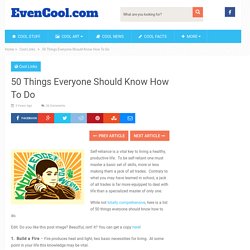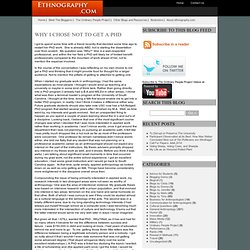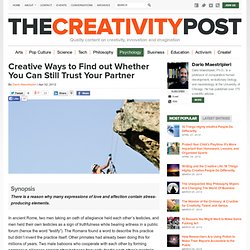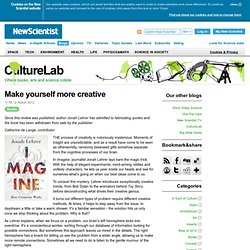

50 Things Everyone Should Know How To Do. Self-reliance is a vital key to living a healthy, productive life.

To be self-reliant one must master a basic set of skills, more or less making them a jack of all trades. Contrary to what you may have learned in school, a jack of all trades is far more equipped to deal with life than a specialized master of only one. While not totally comprehensive, here is a list of 50 things everyone should know how to do. Edit: Do you like this post image? Beautful, isnt’ it? 1. 2. 3. 4. 5. 6. 7. 8. 9. 10. 11. Blog Archive » Why I chose not to get a PhD. I got to spend some time with a friend recently that decided some time ago to restart her PhD work.

She is already ABD, but is starting the dissertation over from scratch. My question was “Why?” She is a well-respected professional, and within the her field a PhD will likely be of limited benefit professionally compared to the mountain of work ahead of her, not to mention the expense involved. In the course of the conversation I was reflecting on my own choice to not get a PhD and thinking that it might provide food for thought for a larger audience. Not to mention the pitfalls of getting to attached to getting one. When I started my graduate work in anthropology, I had the same expectations as most people: I thought I would wind up teaching at a university or maybe in some kind of think tank. Compounding the issue of being primarily interested in applied work, my research interests in two divergent areas were not seen as worthy of anthropology: One was the area of intentional violence.
Creative Ways to Find out Whether You Can Still Trust Your Partner. 0Share Synopsis There is a reason why many expressions of love and affection contain stress-producing elements.

In ancient Rome, two men taking an oath of allegiance held each other’s testicles, and men held their own testicles as a sign of truthfulness while bearing witness in a public forum (hence the word “testify”). The Romans found a word to describe this practice but didn’t invent the practice itself. Other primates had already been doing this for millions of years. To better understand the testicle ritual and its explanation, it’s important to remember that cooperative relationships between unrelated individuals are intrinsically unstable: one business partner may cooperate one moment and cheat in another, and one romantic partner may promise eternal commitment one day and end the relationship the next.
Make yourself more creative. Since this review was published, author Jonah Lehrer has admitted to fabricating quotes and the book has been withdrawn from sale by the publisher Catherine de Lange, contributor THE process of creativity is notoriously mysterious.

Moments of insight are unpredictable, and as a result have come to be seen as otherworldly, randomly bestowed gifts somehow separate from the cognitive processes of our brain. In Imagine, journalist Jonah Lehrer lays bare the magic trick. With the help of elegant experiments, mind-aching riddles and unlikely characters, he lets us peer inside our heads and see for ourselves what's going on when our best ideas come to us. To unravel this mystery, Lehrer introduces exceptionally creative minds, from Bob Dylan to the animators behind Toy Story, before deconstructing what drives their creative genius. It turns out different types of problem require different creative methods.
Focus, then, can be the enemy of creativity, and experiments back this up. How Companies Learn Your Secrets. The results were dramatic. Over the next four months, those participants who deliberately identified cues and rewards spent twice as much time exercising as their peers. Other studies have yielded similar results. According to another recent paper, if you want to start running in the morning, it’s essential that you choose a simple cue (like always putting on your sneakers before breakfast or leaving your running clothes next to your bed) and a clear reward (like a midday treat or even the sense of accomplishment that comes from ritually recording your miles in a log book).
After a while, your brain will start anticipating that reward — craving the treat or the feeling of accomplishment — and there will be a measurable neurological impulse to lace up your jogging shoes each morning. Our relationship to e-mail operates on the same principle. Some of the most ambitious habit experiments have been conducted by corporate America. “It’s usually not a problem,” she said. “Do you smell it now?”